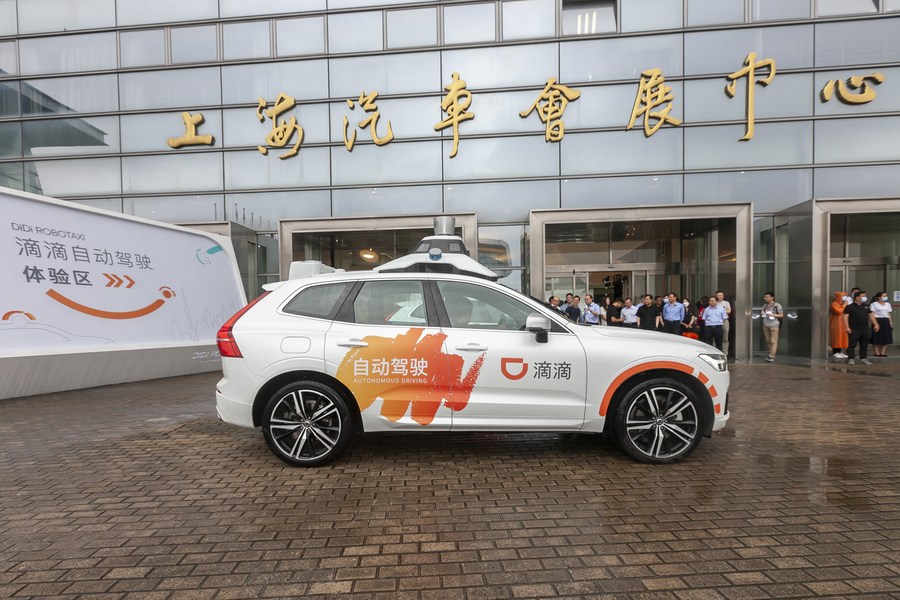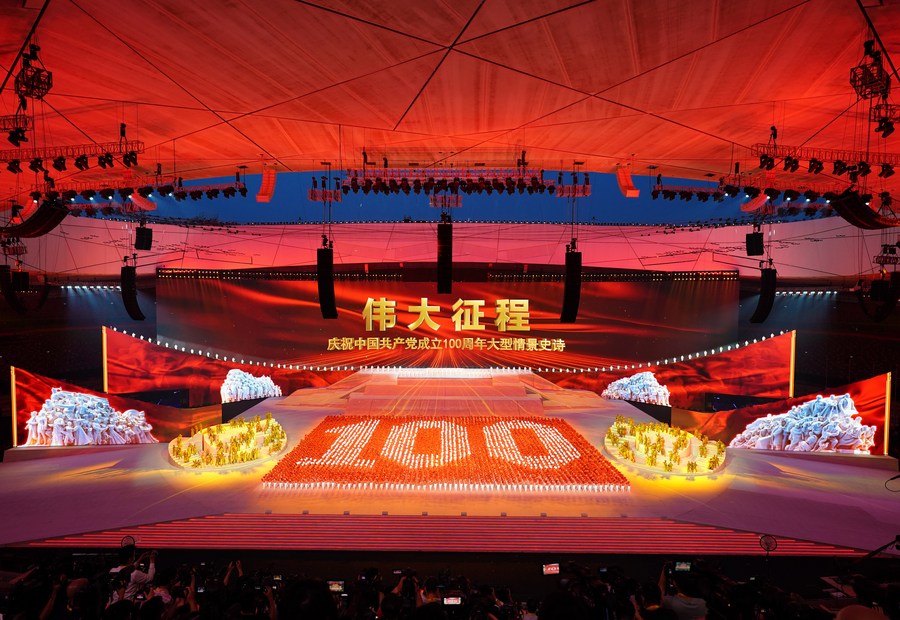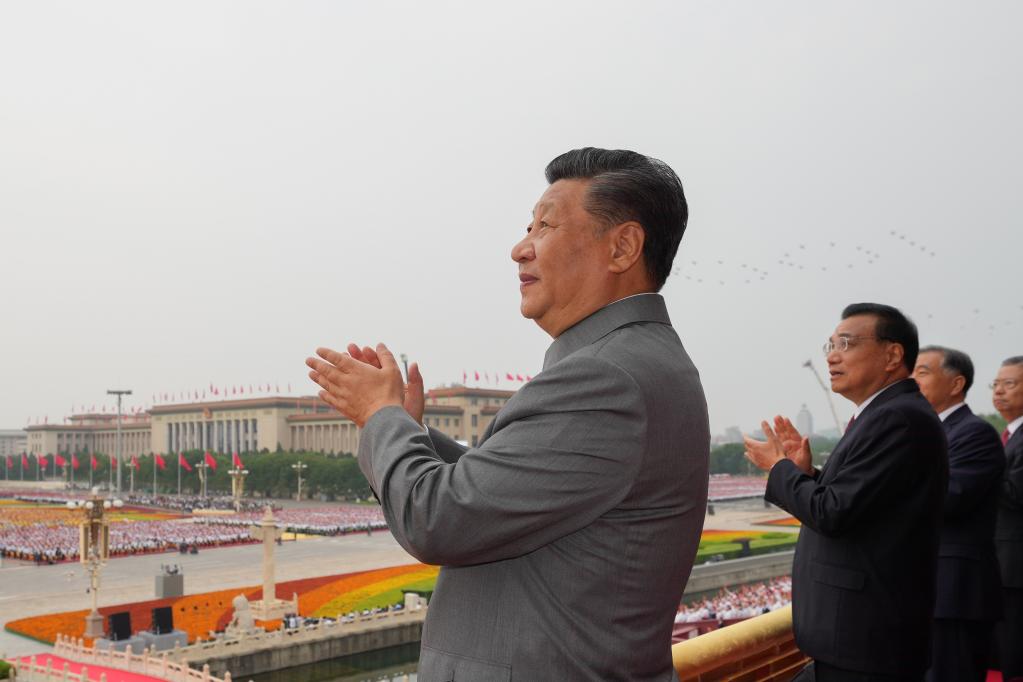
Photo taken on June 27, 2020 shows an autonomous vehicle of DiDi Chuxing in front of the Shanghai Automobile Exhibition Center in Shanghai, east China. (Xinhua/Wang Xiang)
China's mobility market is expected to reach 3.9 trillion U.S. dollars by 2040, by which time the penetration of shared mobility and electric vehicles is expected to have increased to 35.9 percent and 50.2 percent, respectively, according to a report.
NEW YORK, June 30 -- DiDi Global Inc., a Chinese ride-hailing giant, began trading Wednesday on the New York Stock Exchange (NYSE).
The company, trading under the ticker symbol of "DIDI," announced the pricing of its initial public offering of 316.8 million American Depositary Shares (ADSs) at a price to the public of 14 U.S. dollars per ADS for a total offering size of 4.4 billion dollars, assuming the underwriters do not exercise their option to purchase additional ADSs.
Each four ADSs representing one Class A ordinary share of the company.
DiDi started trading at 16.65 U.S. dollars per share on Wednesday, up nearly 19 percent from its pricing. The stock closed at 14.14 dollars apiece, after climbing to as high as 18 dollars in intraday trading.
Founded in 2012, the company offers a wide range of app-based services across Asia Pacific, Latin America and Africa, as well as in Central Asia and Russia, including ride hailing, taxi hailing, chauffeur, hitch and other forms of shared mobility.
Urbanization, economic development, and an increasingly connected world continue to elevate the importance of mobility, the company said in its prospectus, adding China's massive and urbanizing population presents opportunities for new mobility services.
China's mobility market is expected to reach 3.9 trillion dollars by 2040, by which time the penetration of shared mobility and electric vehicles is expected to have increased to 35.9 percent and 50.2 percent, respectively, according to its prospectus, citing a report by China Insights Consultancy, an independent industry consulting platform.
As of Tuesday, the S&P U.S. Listed China 50 index, which is designed to track the performance of the 50 largest Chinese companies listed on U.S. exchanges by total market cap, stood at 4,829.73, marking a 5.41-percent rise for the month-to-date returns and a 7.56-percent slide for the year-to-date returns.













